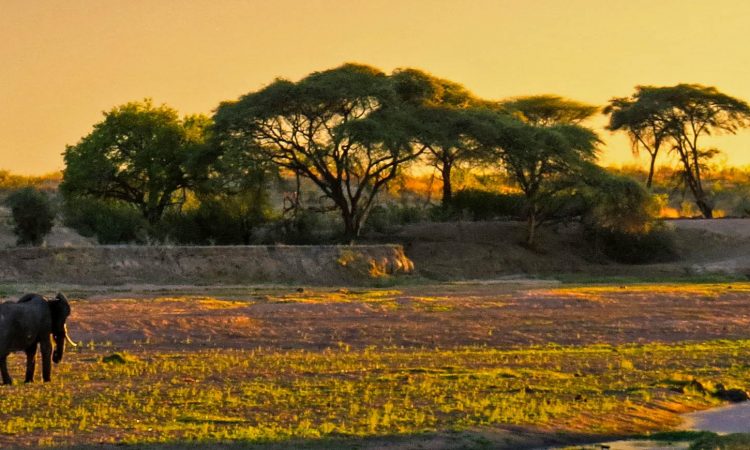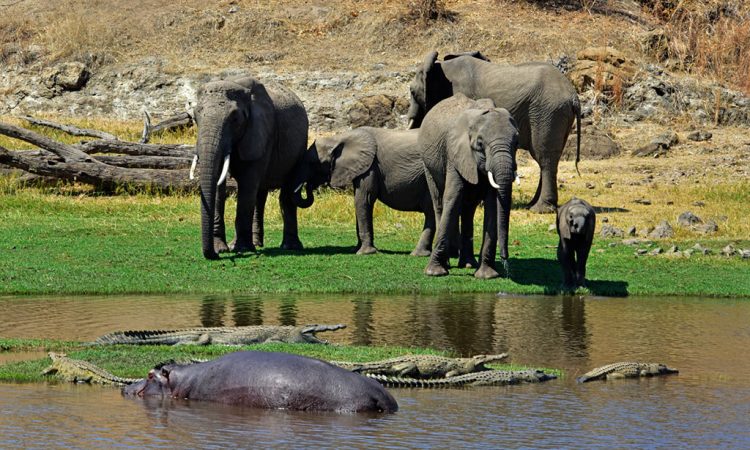The Beauty of Ruaha National Park : Tanzania has a national park called Ruaha National Park. The Usangu Game Reserve and other significant wetlands were added to the park in 2008, bringing its total size to around 20,226 km2 (7,809 square miles).

The park is located about 81 miles (equivalent to about a hundred and thirty Kilometers) west of Iringa. The park is a portion of the 45,000 square kilometer (which is equivalent to around seventeen thousands square miles). The mix of Rungwa, Kizigo and Muhesi ecosystem, which also contains the Mbomipa Wildlife Management Area and the Kizigo and Muhesi Game Reserves are the main compositions of Ruaha National Park.
The Great Ruaha River, which flows along the park’s southeast border and serves as the main attraction for game viewing, is where the name of the park originates. The park has two airstrips: Jongomeru Airstrip, which is close to the Jongomeru Ranger Post, and Msembe Airstrip, which is located at Msembe (the park’s administrative center). The park is accessible by car through a dirt road from Iringa.
It’s understandable if you’ve never heard of Ruaha National Park; it’s one of the safari industry’s best-kept secrets. But those who are familiar with it and have had the good fortune to visit it frequently return to this genuinely distinctive and varied environment. Before you pull out a map and start making travel plans, consider why you might want to see this great location and put it at the top of your safari Wish list for this year.
Ruaha’s birdlife
Once more, just as the mammal species, the avian species benefits from Ruahas’ position on the zone of convergence between the south and east. Ruaha’s has a fantastic mix of southern and northern species, many of which are endearingly colorful. This park is home to more than half of Tanzania’s bird species. Fish eagles, black collared lovebirds, goliath herons, crested barbets, and eleanora’s falcons are just a few of the amazing bird species that have been seen and documented in Ruaha. Ruaha is home to numerous severely endangered vulture populations as well as indigenous species like the hornbill and Tanzania red-billed vulture.
Important wildlife populations
Due to its significant wildlife populations, Ruaha was designated by the EU as the essential landscape for conservation. It creates an intersection where the eco-regions of eastern and southern Africa meet, resulting in a wide variety of rare and unusual species.

It is one of the few locations where both greater and lesser kudu can be seen, along with other uncommon animals like sable and roan antelopes, grant gazelles, eland, Oribi, giraffes, zebras, waterbuck, bushbuck, impalas, and large herds of cape buffalos, to name a few. Although it had suffered greatly from widespread poaching, Ruaha is still an important habitat for elephants and has a sizable population. Given the region’s exceptional biodiversity and species endemism, a longer visit is recommended to fully experience everything it has to offer, The Beauty of Ruaha National Park
Predator population
Ruaha are home to a remarkable and significant predator population worldwide. With over 10% of the remaining lions in Africa, it supports the second-largest remaining lion population in the entire globe. If that’s still not persuading enough, Ruaha is also home to the largest concentrations of critically endangered African wild dogs, as well as a lot of leopards and both striped and spotted hyena.
Places of isolation
Ruaha may provide a sensation of solitude unlike many other places on earth today. When you arrive in Ruaha, you could be excused for thinking that you’ve traveled back in time and are now in a place far apart from modern civilization and the stresses of everyday life. A faraway wilderness that is wild.
Although Ruaha is Tanzania’s largest national park, it has received the least amount of exploration due to its difficult access. Perfect if you really want to go away and let Ruaha show you how to live again at the slower pace set by nature.


